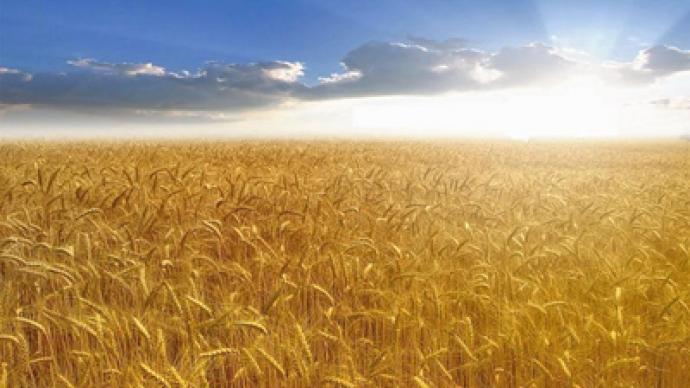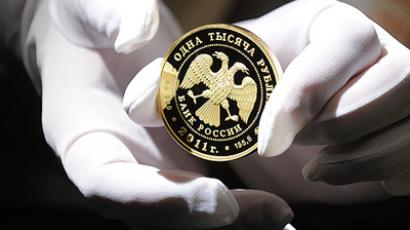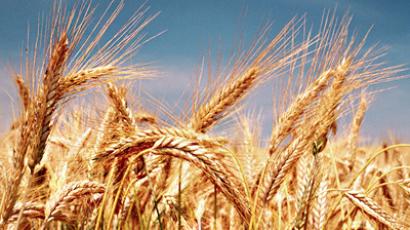Getting a better harvest from Russian agriculture

With the government looking to promote development of Russia’s agricultural sector Business RT spoke with Rustem Mirgalimov, head of major Russian agricultural producer Razgulay Group, about the challenges and issues it faces.
RT: Mr. Mirgalimov, thank you for joining us. You are the head of the major player on the Russian agricultural market. You produce grain, sugar, trade in these commodities and have recently expanded into new fields. Let's start with the drought of summer 2010. What did it show to Russia's agricultural sector? RM: “Interesting question. First of all, it showed that Russia is part of the global agricultural and food system and it is very important to have stable predictable agrarian markets and have opportunities for stable export and access to products and technologies on the global market. The agricultural market is very volatile, and we were able to see clearly all the problems of Russian agriculture.Problems with infrastructure, first of all, due to lack of export mechanisms, transport problems, and crop technologies. Very little attention is paid to land amelioration, which I think is very important, because it helps minimize the risks we face in agriculture.” RT: Do you think the Russian agricultural sector is a big enough player on the domestic and global markets? Do Russian producers compete effectively with exporters and can they become more significant exporters? RM: “Russia has vast land resources, but unfortunately we don't use them efficiently. Potentially Russia could be a major player on the market, producing and exporting grain and other agricultural products. The potential is huge. Many investors started paying attention to the agricultural sector, and that allows us to make it more efficient. New technologies are being implemented, processing is being modernized. In this context there is a good potential for increasing production and export.” RT: The government has stated that it is necessary to stimulate investments in agriculture, so that Russia becomes a more significant market player. What do you think is the best way to go about it?RM: “There are several aspects here. First of all, the state needs to play a more active role in developing infrastructure. As I said we don't have enough export and processing capacities. Secondly, land ownership has to be developed. Today only 20% of all land is privately owned. Everything else is shared land, which is not involved in the business cycle, and that would be a major source of investment. So improving this system would draw more investment. And of course subsidies would allow the expansion of production and the modernization of the sector. Without subsidies the Russian agricultural sector is only 8-12% profitable, which is not enough. Subsidies will make it more appealing to investors and help expand the sector.”RT: Your company is a very significant investor in Russian agriculture. What do you think is holding Russian agriculture back? RM: “Three major factors here. First, legislation governing land ownership and its use for business. Investors need to know that their rights are protected in Russia. Second – lack of infrastructure, which would stimulate demand for locally made products. Thirdly, modernization. There need to be certain bonuses for investors, so that they are motivated to invest in agriculture. Although today we see two "weapons of mass destruction" – lack of water and lack of food. That's one of the reasons why many investors are looking to invest in agriculture. There are 30-40 global funds that invest all over the world. And they are interested in Russia and the CIS. Foreign investors own over 1 billion hectares of land, where they develop their agricultural businesses.” RT: What about logistics? Are they developed enough?RM: “When we talk about infrastructure, it's not only export capacities. This includes logistics as well – storage and processing of grain and other agricultural products. Many things are still underdeveloped – vegetable freezing technologies for example, production and packaging. Including things related to logistics.” RT: We know that Razgulay is a significant sugar and grain player – but do you look at other sectors and think about expansion possibilities?RM: “Agriculture should be developed as an integrated business. We are not a niche player. We want to have balance in our company – in crop planting, processing, logistics, and distribution. So we are investing in expanding our crop lands. They are connected with the processing – production of rice, sugar, milk and other foods. We are seriously looking into meat production. So our business will be balanced, which will allow it to be less volatile. And modernization will make our business more efficient.” RT: So you are planning to expand to other areas as well? Beyond grain and sugar?RM: “Historically we've had three main businesses – production of sugar (we grow and process our own beets), grain (production and trade), and rice. We are planning to implement a cluster system, when every business completes another one. Besides sugar production that we have right now, we are planning to develop milk production, which would be connected with sugar production. Because sugar production waste could be used as food for cows. We are looking into processing this milk and making milk products.” RT: Do you think foreign investors are interested in Russian agriculture?RM: “As I said we see a serious interest from global investors on the market of agricultural business and the bank of farm land. The current demographic situation will affect growth in demand. Production will not be able to meet this demand. There is significant growth in population and urbanization in China and other countries in South-East Asia. The demand for proteins will grow rapidly – milk, eggs, meat. It means that the demand for grain will grow also.”RT: Do you think Russia's ascension to the WTO will help bring changes to Russian agriculture? RM: “There have been a lot of debates on the issue, because people don't understand clearly what it will entail. They don't know what kind of support the state will continue to provide. From talking to people who are directly involved in the process, we understand that we will still have the state's support. Everybody understands that it is important to have food security. The programs that we have in place until 2012 will be extended until 2020. So key areas that have had state support will continue to receive this support.” RT: Do you think it's possible to have better quality and lower prices in Russia, if our agricultural sector is more developed? RM: “That is the objective. It is possible through modernizing existing industries, introducing new technologies by gaining access to world markets, attracting foreign investors. Our goal is to have the most efficient agricultural sector in the world. There are certain niches where we can compete and lead.”














